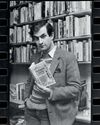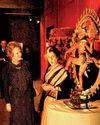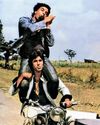
Among these was Rojer Mathew vs South Indian Bank, comprising a set of nearly two dozen petitions challenging the validity of the Finance Act, 2017. The contentious legislation had brought sweeping changes to the structure and administration of various statutory tribunals in the country such as the National Green Tribunal, Armed Forces Tribunal and Debts Recovery Tribunals. The petitioners claim the passage of the legislation as a money bill, which enabled it to bypass the Rajya Sabha, was illegal.
It was hardly the longest-pending case on the agenda—the oldest among the six is from 1998—and so it was listed at number five in the sequence. But the extra significance attached to it became clear when Chief Justice of India (CJI) D.Y. Chandrachud said the bench would give the money bill matter “some priority”. This was in response to appeals by lawyers Kapil Sibal and Menaka Guruswamy seeking an urgent listing on behalf of the petitioners. Chandrachud’s seeming acquiescence, as expected, rattled the Union government. Representing the Centre, Solicitor General Tushar Mehta told the bench that matters should not be prioritised based on “political exigencies”. The CJI’s response—“Leave it to us; we will decide”—is where things stand.
WHAT'S A MONEY BILL?
This story is from the October 30, 2023 edition of India Today.
Start your 7-day Magzter GOLD free trial to access thousands of curated premium stories, and 9,000+ magazines and newspapers.
Already a subscriber ? Sign In
This story is from the October 30, 2023 edition of India Today.
Start your 7-day Magzter GOLD free trial to access thousands of curated premium stories, and 9,000+ magazines and newspapers.
Already a subscriber? Sign In

He gave the beat to the world
He would pick up the rhythms of each experience of mobility and weave them into his taals. Thus it was that he reflected joy and laughter in rhythmic cycles...such was the magic of Zakir's fingersText and photographs by Raghu Rai

KERALA TOURISM CAMPAIGN, 1989 - TICKETS TO PARADISE
All it took was a catchy tagline-'God's Own Country'-for the world to discover Kerala's wealth of natural beauty. It remains among the best tourism ad campaigns, earning the state a place among top 10 international destinations

SPIRITUALITY - THE GURUS OF COOL
Among the cult Indian gurus, no one had a bigger hold on western minds than 'Osho' Rajneesh. He's also perhaps the role model for the enterprise-building gurus of today

RETAIL SHOPPING - THE MALL MANIA
Shopping malls, a 1990s innovation in India, changed the way the Indian middle class shops. Their success now lies in being 'shoppertainment' destinations, offering something for everyone

CULINARY RENAISSANCE, 1978 - TANDOORI NIGHTS
ITC's Bukhara and Dum Pukht turned the world to tandoori cuisine and had an enormous impact on the F&B industry. Decades on, they are still a pit-stop for celebrities and heads of state visiting Delhi

INDIAN WRITING IN ENGLISH - REVENGE OF THE NATIVE
Rushdie lit the way but Indian writing in English has taken a life of its own in the past few decades, with translated Indian fiction most recently having its moment in the sun

INDIAN ART - A BRUSH WITH GOLD DUST
The 1990s economic liberalisation came as oxygen, lighting up the Indian art scene. Today, artworks by established masters routinely go for astronomical amounts

FESTIVAL OF INDIA, 1982 - CULTURE CAPITAL
The Festival of India grew into a symbol of our 'soft power', introducing our art and aesthetics to a global audience while also helping rebrand our domestic products

THE INDIPOP TREND - DISCO GOES DESI
For ages, the film song ruled. Nothing else was audible. Then came Nazia, charioteered by Biddu, and Indian ears went into a pleasant madness. Literally, Disco Deewane. A whole genre was born

SHOLAY 1975 - THE BIRTH OF THE FANDEMIC
India had seen hits before. But Sholay seared into its collective psyche like a badland bullet. The effect was on a scale never seen before- one film creating a new mass folk culture. And a trail of monster blockbusters that still continues